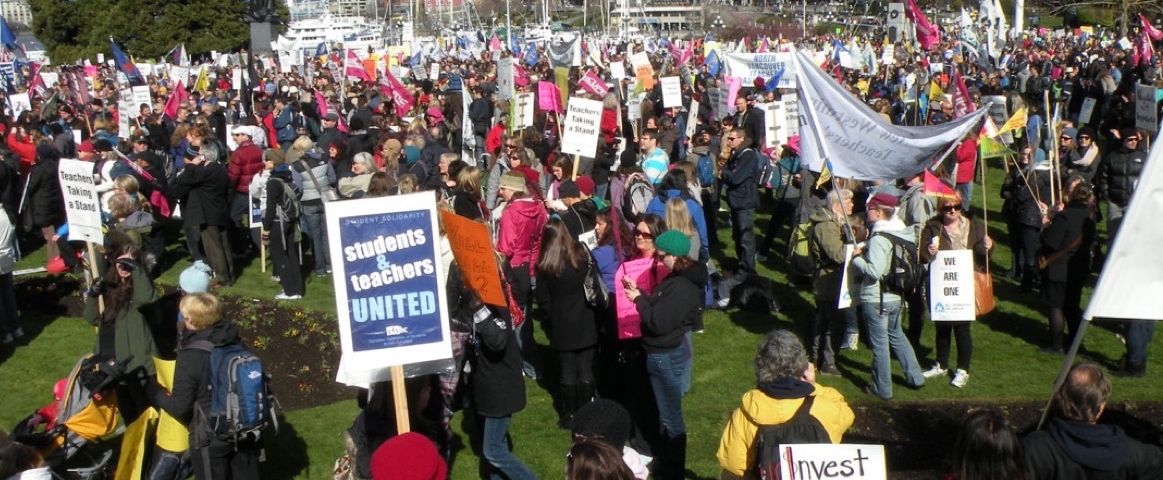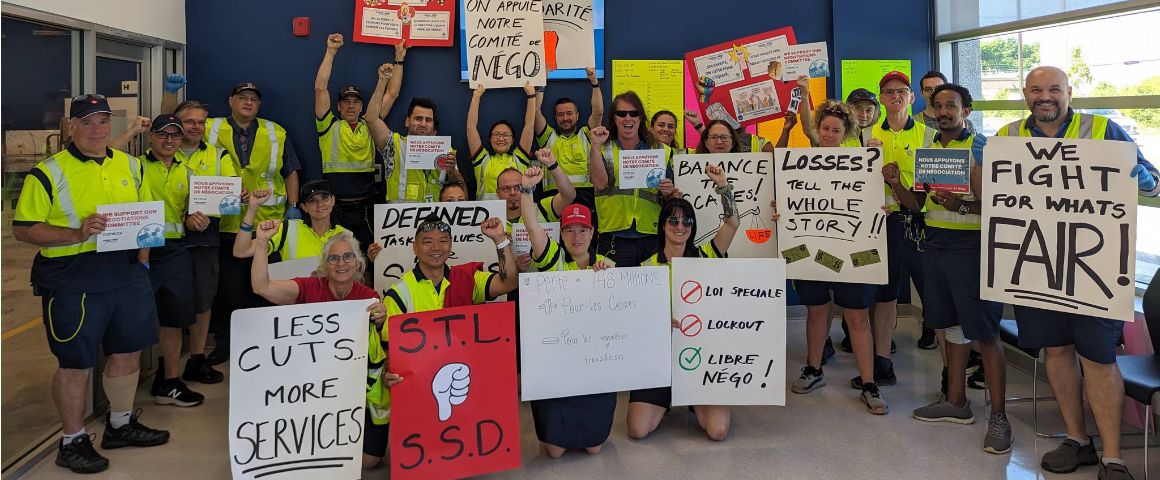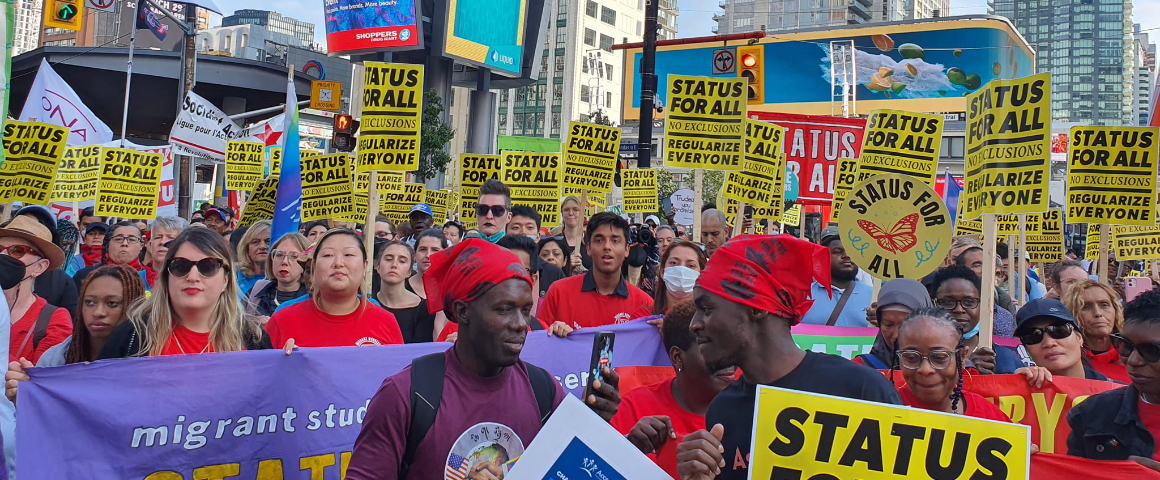With time running out to reach a new collective agreement, the BC Teachers’ Federation (BCTF) and the provincial government have very different views. Key bargaining talks in British Columbia are conducted province-wide between the BCTF and the BC Public School Employers’ Association (BCPSEA), which represents the government and school boards.
The former Liberal government was highly antagonistic towards the public education system, leading to several major confrontations over the years 2001-2017. Many teachers worked hard to defeat the Liberals, and expectations of a better relationship were high after the NDP minority government took office in 2017, backed by three Green MLAs on most votes in the Legislature.
The current agreement expires on June 30, and Finance Minister Carole James is telling the media that “no one around the table is looking for concessions,” and that negotiators want “positive change for kids” and teachers.
But outgoing BCTF President Glen Hansman, speaking on CKNW radio, recently called that assertion “completely untrue.”
“Right now at the bargaining table the employers association is bargaining like it’s 2014 and it’s trying to roll back the gains that we got at the court,” said Hansman, referring to the teachers’ landmark Supreme Court of Canada victory that restored class size and composition to 2002 levels. He says the BCPSEA has tabled “one-size-fits-all” class size numbers covering the entire province. That means the loss of teaching positions and new, larger class sizes in major cities such as Vancouver and Surrey.
Hansman is dismayed to hear the NDP government use the language of “flexibility,” similar to the Liberal terminology about education. He says the government is allowing the BCPSEA to table proposals that negatively impact class composition and ratios for specialist teachers counsellors, teacher-librarians and resource teachers. According to Hansman, the employers also propose to eliminate the different specialist teacher ratios for special-needs students that exist in various districts, in place of a “pot of money” approach that wouldn’t guarantee specific numbers.
There are fears that the dispute could heat up and result in a strike next fall that nobody wants, unless the government tells its bargaining team to take class-size and composition concessions off the table.
But so far, Carole James and Education Minister Rob Flemining keep calling for “changes” that would replace class-size and composition language the BCTF spent some 14 years in court to get restored after being illegally stripped out by the Liberals in 2002. The BCTF argues that these “changes” are in fact unacceptable concessions, with repercussions far beyond semantic differences.
Former Vancouver School Board chair Patti Bacchus, now a freelance writer on public education issues, wrote recently in the Georgia Straight weekly that she doesn’t know “which genius on the employer/government side of the bargaining table thought it was a bright idea to table proposals to scrap what the teachers won back in court and replace it with something weaker, something that could actually worsen class size and composition in many school districts.”
“There’s just not a chance in heck the BCTF’s bargaining team could convince their members to agree to that,” says Bacchus, who was known for her spirited defence of public education during the Liberal years. “And why on earth would they? In exchange for a salary increase that won’t even keep pace with inflation, much less bring them up to what their counterparts in other provinces are making?”
She points out that B.C. teachers have the second lowest pay scale of all Canadian provinces, ahead of only Quebec. But the NDP government’s bargaining mandate for public-sector unions is set at two percent annual increases over a three-year deal, and most other public-sector unions have already settled, including “me too” clauses in their contracts. If teachers won the kind of increases they deserve, says Bacchus, other public-sector union employees would get bigger increases, which would upset the NDP government’s fiscal plans.
Bacchus points out that teachers are furious at what they consider a betrayal by the Horgan NDP government, which is acting not much different than the former Liberals.
When the BCPSEA proposals “changes”, she writes, “it immediately brings to mind `flexibility and choice’, which was what former education minister Christy Clark said the contract stripping was all about back in 2002. Those of us with kids in the system learned the only `flexibility and choice’ that came out of that was that school boards got a choice of what to cut and could pick between school librarians, special education teachers, counsellors, and so on, to balance their underfunded budgets each year.”
Bacchus and Hansman both agree that the cabinet ministers may be acting on poor information. But both are also deeply concerned that nothing seems to have changed for the BCPSEA, which they say is controlled by government appointees who care about financial targets more than layoffs and poorer learning conditions for students.
Meanwhile, school boards are already organizing classes for next year, which is difficult when there is no agreement on class size and composition.
“Schools need stability and clarity so they can focus on doing the best they can for their students,” writes Bacchus. “It wasn’t long ago some of today’s cabinet ministers were in opposition, joining teachers on picket lines and tweeting about class size and composition. Now that they’re in government, it’s bad enough they set a bargaining mandate that won’t give teachers the kind of salary increases they deserve. The least they can do is be forthright about calling a concession what it is.”
In the bigger picture, this struggle reflects a critical weakness of the NDP government: its stubborn adherence to the fiscal framework established by Gordon Campbell. After his election in 2001, the Liberals gutted the treasury by giving sweeping tax cuts to upper income earners and corporations, costing the province over $2 billion annually at the time, and much more today. The resulting revenue shortfall has left the NDP scrambling to find a few hundred million dollars here and there, but lacking the ability to adequately fund public education, social welfare, health care, and other areas which were devastated by the Liberals.
There have been some minor but important policy changes for working people under the Horgan NDP. But the end result of this government’s acceptance of orthodox neoliberal tax policies may be a strong sense of “who cares” among labour and progressive activists when British Columbians go to the polls at some point in the next two years.




